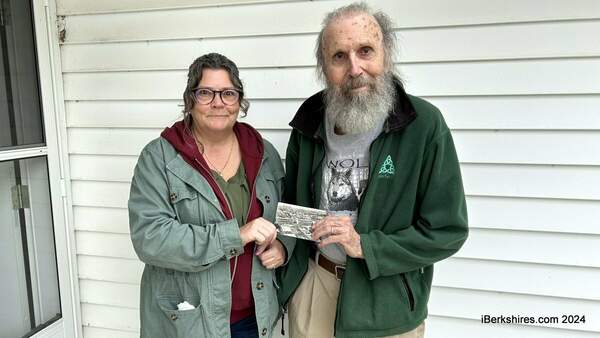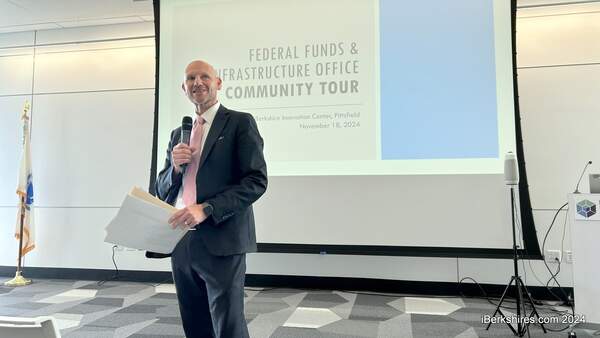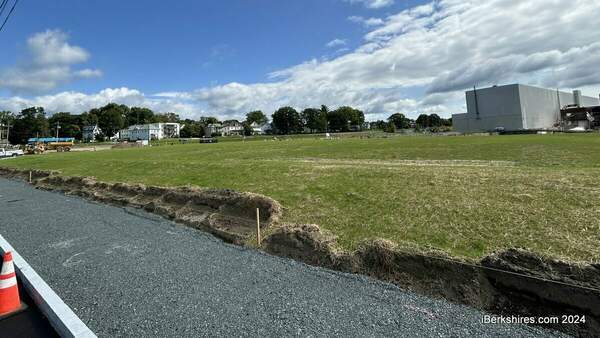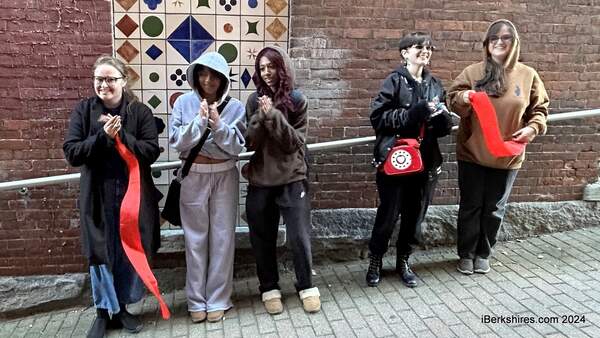
Senate Candidate Conroy Stumps On Job Creation
 Conroy, a Wayland representative, has done a walking tour over the past week to meet with people and take part in community service activities. |
The three-term state representative set out from his Wayland home on July 2, hitting towns big and small across 600 miles to hear what constituents want now, their hopes for the future and their expectations of what a U.S. senator can do. It's a post he hopes to wrest from Republican Scott Brown next year — should he win what's shaping up to be a crowded Democratic primary.
"We're doing gatherings like this where folks who want to come and talk about issues and really get into some of the details," said Conroy, after meeting with nearly a dozen residents, most members of the Democratic City Committee, on Sunday night. "There's a lot of great ideas out there amongst the populace and I want to hear that."
The casual conversation outside Freight Yard Pub ranged from health care reform to the rights of public unions to education to military spending. But the theme was jobs, which Conroy focused on like a laser and with good reason — he's been hearing it from constituents all week.
"My No. 1 priority is job creation," he said. "So many people have seen a hollowing out of the middle-class job opportunities that were out there for several decades but are no longer readily available."
Congress isn't paying enough attention to job creation and is too polarized to get anything done, said Conroy, who vowed to "lead by example" and press jobs and collaboration across the aisle if elected.
Conroy, who's worked in both the public and private sectors, said the middle class is in crisis as manufacturing jobs disappear overseas. He's advocating for elements that will improve the climate for businesses, such as investing in infrastructure, broadband and STEM — science, technology, engineering and math — startups.
"[We] need to encourage companies to think more locally as opposed to just the bottom line; we need to think not just about profits but about jobs and communities," he said.
 City Councilors Lisa Blackmer and Marie Harpin were among those quizzing Conroy on his positions. |
There's money for investment, said the Yale graduate, in the nearly $900 billion being spent on defense every year.
"I am very cognizant of the need to protect this country," said Conroy, who worked for U.S. Sen. Barbara Mikulski as a national security assistant and was a military budget analyst. His wife, Sarah Sewall, is a national security expert and a member of the secretary of defense's Defense Policy Board.
He supports an accelerated drawdown in Irag and a reallocation of excess defense funds for investment at home. There has been an effort to reduce waste in military spending, he said, "But I think we can do a lot better than we're doing."
Conroy spent a dozen years working with consulting groups helping businesses and social service agencies with growth strategies, finances and planning. That and his Legislative and congressional service, including a decade working with refugees and displaced persons, he believes sets him apart from his Democratic opponents in understanding how to get things done in Washington.
And he's taking aim at Brown, who won last year's special election to replace legendary liberal Ted Kennedy.
"He will be beatable because he has not voted the way the people of Massachusetts wanted him to vote," said Conroy, who expects the greater turnout in the presidential election year to go the Democratic way. "He's voted 87 percent of the time with the Republicans."
He said he specifically launched his campaign westward because not enough attention is paid to Western Massachusetts by Boston.
"It's a very important part of the state, it's a beautiful part of the state; there's wonderful people out here and you deserve more opportunity from your partners in government."
Tags: Conroy,
















